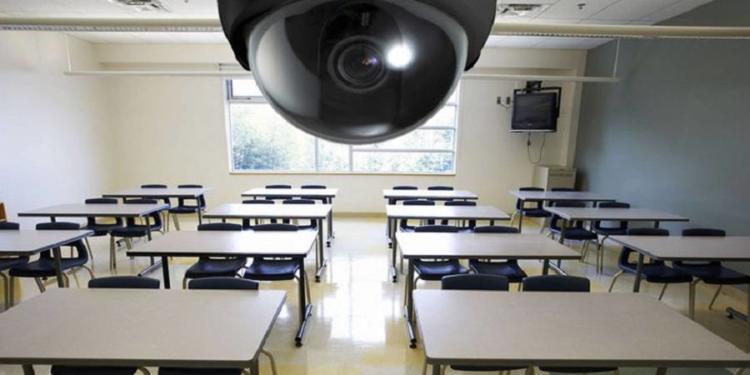The hallmark of the AAP government’s policy-making has been a focus on optics and cosmetic changes instead of well-thought-out solutions to real problems that would benefit the larger public. Carrying on this style of governance, the AAP government has now decided to install CCTV cameras in classrooms of government schools. The government will be offering the parents of these children a mobile app through which the parents can monitor the kids throughout the school period.
"मुझे खुशी है कि दिल्ली के स्कूलों में CCTV लगने का काम चालू हो गया है। यह पहला स्कूल है जहाँ के क्लास-कॉरिडोर-प्ले ग्राउंड व पूरे स्कूल में 210 CCTV लगे हैं।
ये दुनिया का पहला स्कूल है जहां पैरेंट्स अपने बच्चों के क्लास का फीड अपने फ़ोन पर देख सकते हैं CCTV से"- @ArvindKejriwal pic.twitter.com/fWzDhArGHg— AAP (@AamAadmiParty) July 6, 2019
As bizarre as this idea sounds, it is quite dangerous as well. Surveillance is a controversial issue with multiple legal, moral and ethical dimensions. Yet, the Kejriwal government does not seem to be even wary of the implications of such pervasive surveillance on young children. Usually, surveillance is necessitated and justified through the arguments of security concerns but in this case, the security dimension does not even feature in the defense of the measure by the Delhi government. Ostensibly, the Delhi AAP government has cited that through this measure, the parents can monitor the ‘progress of their children’ at all time. However, this euphemism fails to take into account the aspect of ‘behavioral change’ this measure seeks to achieve. For young children, school environment offers an opportunity for development through interactions with their peers, school teachers, and the school staff. It is the environment where children learn to be independent and to make independent choices. The constant monitoring of the children by ‘grade-obsessed’ parents would ensure that children are expected to behave along a predetermined course, essentially robbing them off of independent decision-making. Any deviation from the ‘standard course’ would inevitably invite some sort of punishment or rebuke directly from the parents, as the idea of this kind of surveillance goes. This ‘Panopticon’ stick-approach to behavioral change will lead to decreased independent thinking by the children and limit their social learning.
Apart from the fear induced behavioral change adversely affecting the cognitive development of the students, there is another ethical issue with the AAP government issuing this diktat on government school children and not private schools. Obsessed with cosmetic changes when it has failed to deliver on key promises, the AAP government has decided to use the government school students coming from the disadvantaged groups as guinea pigs without any fear of the effect it will have on the psyche of the children at all.
The issue of privacy is also an important one here which the AAP government has not addressed. The question is whether this kind of pervasive surveillance on kids is even legal? The directive regarding the CCTV in schools issued by the AAP government does not address this question at all.
Like every policy decision AAP has taken, this one as well aimed solely to garner maximum headlines with absolute disregard to any positive development. The installation of CCTV cameras throughout Delhi has been one of the main promises of AAP government and having utterly failed to do so, the AAP government is now seeking to shift attention through this dangerous, miscalculated and absolutely unnecessary diktat.




























